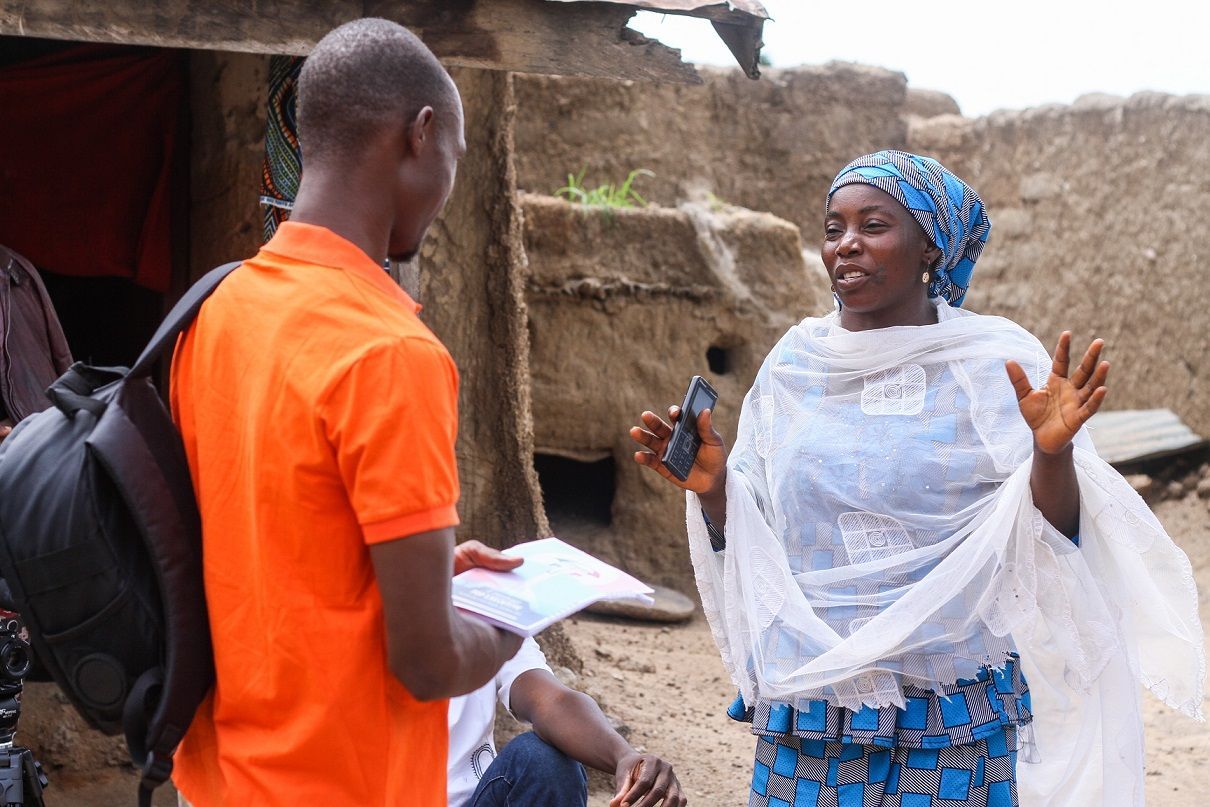Reading time:4 min read
Fintech in Nigeria - Reaching Rural Communities through Partnerships
The pairing of technology with financial services gives rise to the sweeping phenomenon of fintech which has become a huge deal globally deepening access to financial services for a wide swathe of individuals and groups. Fintech helps in improving and automating the financial services sector and has made a welcome shift to many customer-oriented services from retail banking to agriculture. Key to applications of fintech in Nigeria is the promise that it continues to hold for extending services to underserved groups of the population and enabling ease of transactions across board.
Key drivers of the adoption of fintech in Nigeria are an increasing population of under 35 Nigerians, a significant talent pool for fintech companies to draw on and the exponential adoption of mobile phones. These adoption drivers contributed to driving up the monthly transaction value from 5 million dollars in 2011 to 142.8 million dollars in 2016. In fact, in 2018, investment numbers in the country showed the following promising stats for the growing sector:
- 56% year-on-year growth recorded over 2017
- 58% proportion of the total $178.44 million invested in startups in 2018 going to fintechs
- $103.41 million total investments recorded for fintech firms

Still, the global fintech industry is valued at approximately $40 billion leaving a lot of room for growth in Nigeria's own local industry.
Impact of Fintech in Nigeria
Some other key considerations for the impact of fintechs include:
- Promoting cashless systems: The digital nature of fintechs will enhance the delivery of value via non cash channels.
- Deepening financial inclusion: Due to the lower transaction costs incurred by fintechs and the wider reach possible, they have significant ability to help expand financial inclusion.
- Diversification of credit channels: The emergence of fintechs have expanded the credit channels available with P2P lending gaining more credence.
- Increasing Access to capital markets: Fintechs operating in the investments landscape have expanded access to the capital markets via retail products.
Fintech Challenges in Nigeria

Some challenges hinder the impact that fintech solution providers can have in Nigeria. As contained in the report of the FinTech Roadmap Committee of the Nigerian Capital Market released by the Securities and Exchange Commission (SEC), these include regulation, access to data, lack of market confidence, cybersecurity, institutional knowledge gaps, lack of innovation, weak digital infrastructure, underdeveloped VC structure and lack of entrepreneurial support system.
Taking Fintech Impact to Rural Communities
The impact of fintech solution providers often also do not get to rural communities in Nigeria due to some infrastructural dearths that make these communities difficult to include. According to a study published by the Enhancing Financial and Innovation Access (EFInA) group, 63.3% of Nigeria’s 99.6 million adult population live in rural areas. This significant portion of the population find it harder to utilize the most basic financial services, and often stay below the poverty line due to this exclusion.
Partnering with AFEX for Impact
To strengthen the position of financial services in these rural communities, fintech companies can work with partners like AFEX who are already transacting and providing solutions in these communities. The potential for a network approach to the rural problem is a massive one that surpasses individual player solutions. Multiple players are needed to look at the problems of rural financial exclusion and create solutions that create shared prosperity.
AFEX which operates 42 warehouses and storage centers across Nigeria brings a captive market that reduces the transaction cost for payment providers looking to reach early adopters. As more individuals and households in these communities take up payment solutions through bank accounts or mobile money accounts or e-wallets and use those same wallets to access credit, building up a credit history that improves their credit rating and enables them access better loans or sell and transact both within and outside their communities, it starts to increase the usage and adoption of fintech solutions and induces virality which in turn grows adoption.
Financial inclusion is a key business and impact offering of AFEX and we aim to improve access to financial services for one million farmers by 2024. We are already cultivating partnerships that will get us there and the fintech companies driving massive innovation and inclusion are a huge part of that formula. Being included in functional payment systems means that these farmers can more easily access systems of credit, can keep their money safely and can be assured of reduced transaction time and costs, which leads to growth/ progress year-on-year, which is often lacking in the current conversations on smallholder agriculture
